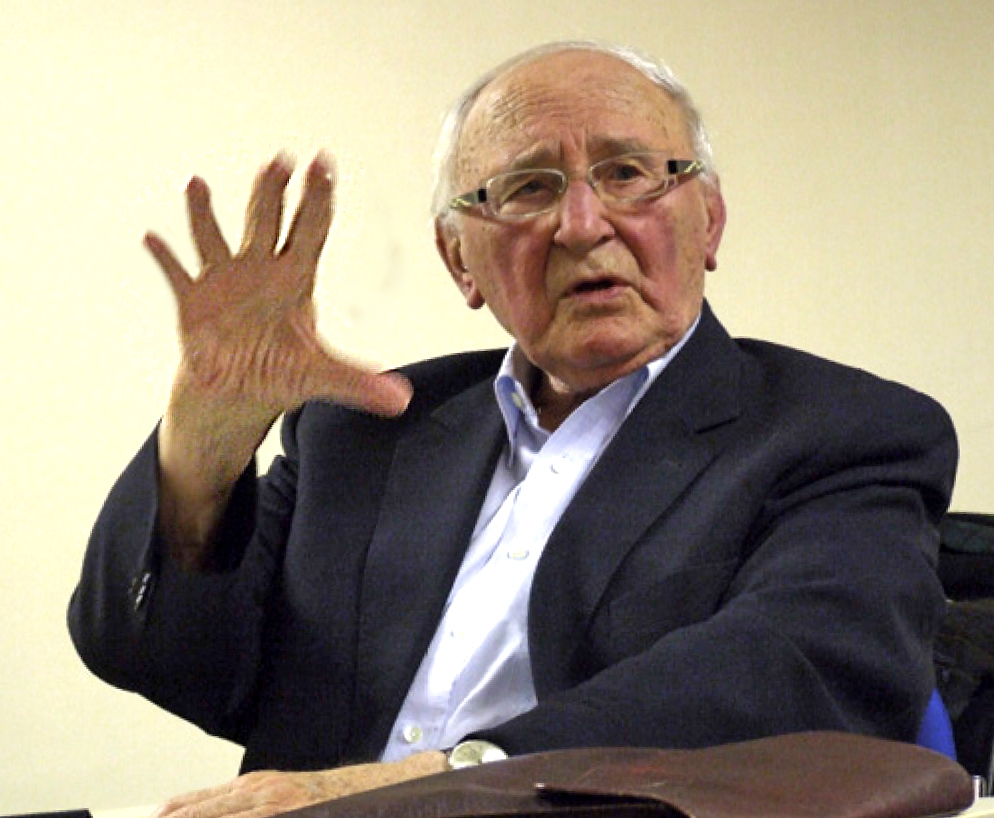Concern for others is the core of Metz’s work, which explores this idea using a variety of ways. He finds strong images to introduce topics and concepts that will spark the reader’s mind. The Metz quotes collected on this page do not exist in isolation. Instead, individual concepts weave themselves together into a larger tapestry.
Metz insists that when we speak of God, we must face into the storms of our broken world. We have to overcome the structural drift which makes social difference fundamental and negative, which regards the “stranger” as either not worth seeing or as someone to dominate. Concrete narratives of human suffering are dangerous to universal theological systems and to social structures of domination.
Metz proposes that the logos of theology include the cries of those who suffer and the acknowledgment of the stranger, the other. Reason endowed with power of memory, the memory of someone else’s suffering, demands more than assent to propositions. It calls for solidarity that moves beyond a theoretical mediation of religion and human experience toward a ground in critical and reflective praxis, that is, toward a thoughtful and transformative action.
Metz’s practical theology of the world changes theologians and their world. He does not tell us what to decide, which ethic or economics to hold, but simply that our theological reasoning must also attend to the reality of human suffering. In political theology, theological reasoning presumes an a priori of human suffering; the touchstone for theological analysis and construction today is a memoria passionis, an engaged compassion.
The Holocaust

“The fate of the Jews must be remembered as a moral reality precisely because it threatens already to become a mere matter of history” ( LS 40).
“Therefore the question after Auschwitz is not only, Where was God in Auschwitz? but also, Where was humankind in Auschwitz?” (FW 28)
“To preserve the remembrance of Auschwitz, of the Shoah, so that it never happens among us again, we need to support our consciousness with something I call an ‘anamnestic culture.’ This is the dowry of the Jewish spirit. And it is largely missing among us” (HAH 15).
“With Auschwitz, the epoch of theological systems which are separate from people and their concrete situations has come to an irrevocable end” (EC 23).
“My problem is to discover whether and how we Christians can and may speak of God after Auschwitz in a credible constellation” ( FF 45).
Memoria Passionis / Compassion
“Jesus didn’t look first to the sin of others but to the suffering of others” ( LS 169).
“Money, often acquired totally without compassion, becomes a substitute for compassion with the suffering of others” (FF 22).
“Remembrance of others’ suffering is intrinsic to reason and guarantees its human character” (FW 31).
“I wanted always and unconditionally to ask about the suffering of others, the suffering even of the enemy, and to ask about the sufferings of the dead, to which no impassioned struggle of the living can reconcile us” (FW 29).
“To speak of God means to speak of the suffering of the stranger and to lament responsibility neglected and solidarity denied” (LS 171).
“In contemporary life there is a kind of ‘spell’ or ‘blind spot’ that prevents or distorts insight into the primordial cognitive and practical role of suffering“ (FHS 106).
“The theodicy problem must be posed, as far as I understand it, as a question of the suffering of others and as the personally experienced past suffering of others. For the theodicy question, the basic theological question–and theology is a culture of questions not of answers–is not ‘Who saves me?’ but rather ‘Who saves you?'” ( LS 137)
Dangerous Memory
 “But there is another way to remember: dangerous memories, memories that challenge. These are memories in which earlier experiences flare up and unleash new dangerous insights for the present” (FHS 105).
“But there is another way to remember: dangerous memories, memories that challenge. These are memories in which earlier experiences flare up and unleash new dangerous insights for the present” (FHS 105).
“The messianic future of Christian faith does not just endorse and reinforce our preconceived ‘bourgeois’ future. It does not prolong it, add anything to it, complete or transfigure it. It disrupts it” (FF 18).
“This a priori of suffering is what orients theology’s claim to truth when, as a political theology, it incorporates the historical, social, and cultural situation in its talk about God” (ET 42).
“Over against the world of our scientific and technological systems this memory takes the form of a dangerous memory, a dangerous memory without which human beings increasingly lose themselves as subjects seeking freedom in solidarity” (FF 77).
“I put forth the notion of a memoria passionis which is at the same time both univeresalizable and particular: the memory of others’ suffering. I develop this basic theological-political category in resistance to the cultural amnesia of our time” (LS 174).
Narrative
“Narrative language is not just for entertainment or diversion. It can be full of resistance; indeed it may be quite subversive” (HAH 32).
“Above all, what is new and has never yet been can only be introduced in narrative” (LS 103).
“A culture that does not want to fall victim to amnesia, that does not want to lose touch completely with those memories that shape its life, must in this sense always have something like a narrative culture with in it” (HAH 32).
Praxis
Ultimately, it is of the very essence of the Christian faith to be believed in such a way that it is never just believed, but rather–in the messianic praxis of discipleship–enacted” (LS 47).
“Or do we simply believe in compassion and remain under the cloak of mere belief in compassion fixed within the apathy which accompanies life as domination?” (LS 57)
Do we share in the sufferings of others, or do we just believe in sharing them and remain, under the cloak of belief in ‘sympathy,’ as apathetic as ever?” (LS 19)
“The universality of this love does not consist in a refusal to take sides, but in the way it takes sides, without hate or personal hostility” (FF 20).
The catastrophes must be remembered with a practical-political intention so that this historical experience does not turn to tragedy and thus bid the history of freedom farewell” (LS 139).
Acknowledging “the Other”
“This principle of the fundamental equality of all human beings entails the recognition of an authority that is open to and reasonable for all people: the authority of those who suffer” (FW 32).
“[There is a] questionable hermeneutic of assimilation, a hermeneutic of domination, that has no eyes for the trace of God in the otherness of the others and that, therefore, continually also violated the culture of these others it did not understand, and made them victims” (LS 17).
“An identity thus formed through the principles of domination and subjugation makes the individual profoundly disconnected and, in the strict sense of the term, egoistic. It makes the human being incapable of seeing himself and judging himself through the eyes of his victims” (LS 54).
“[Political theology] strives to replace an anthropology guided by domination with an anthropology guided by acknowledgement and acceptance” (PG 27).
“[Theology] asks critically whether our post-traditional discourse societies that have cut themselves free from the a priori of the memory of suffering have really gotten beyond a logic of the market; whether, thus, they are guided any more by a vision of the responsibility of one person for another that is a priori to any contractual or exchange relationship” (ET 43).
Abbreviations: HAH–Hope Against Hope; FHS–Faith in History and Society; ET–The End of Time?; LS—Love’s Strategy; FF–Faith and the Future; FW–“Facing the World: A Theological and Biographical Inquiry”; PG—A Passion for God

